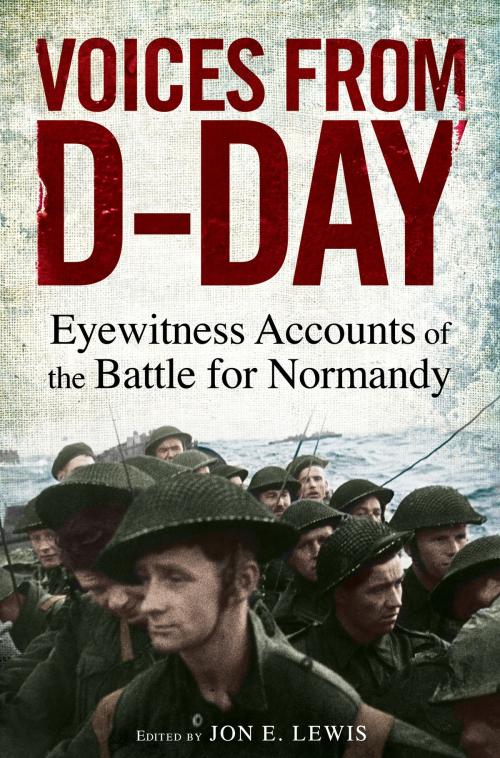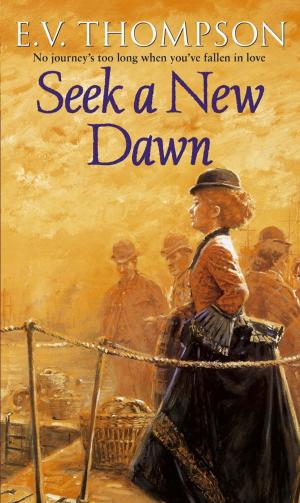| Author: | Jon E. Lewis | ISBN: | 9781472103994 |
| Publisher: | Little, Brown Book Group | Publication: | April 3, 2014 |
| Imprint: | Robinson | Language: | English |
| Author: | Jon E. Lewis |
| ISBN: | 9781472103994 |
| Publisher: | Little, Brown Book Group |
| Publication: | April 3, 2014 |
| Imprint: | Robinson |
| Language: | English |
The extraordinary and compelling story of the 6th of June, 1944, Operation Overlord and the Battle for Normandy is told here through first-hand testimonies from civilians and soldiers on both sides. It features classic accounts by soldiers such as Rommel and Bradley, together with frontline reports by some of the world?s finest authors and war correspondents, including Ernest Hemingway and Alan Melville.
Highlights of this unique collection include the break-out from Omaha beach as told by the GI who led it, a French housewife?s story of what it was like to wake up to the invasion, German soldiers? accounts of finding themselves facing the biggest seaborne invasion in history, a view from the command post by a member of Eisenhower?s staff, combat reports, diaries and letters of British veterans of all forces and services, and accounts of the follow-up battle for Normandy, one of the bloodiest struggles of the war.
The Allied armada involved over 5,000 craft, which had by the end of `the longest day? succeeded in landing 156,000 men, and in breaching Hitler?s much vaunted defensive wall. Dramatic and historic though the events of D-Day were, they were but the opening shots of a much larger and equally remarkable battle ? the battle for Normandy. It took the Allies ten weeks of bloody fighting to get out of Normandy, during which the infantry casualty rate rivalled that of the Western Front in the First World War.
This book is the story of that fateful day, the preparations which led up to it, and the ten weeks of fighting in Normandy which followed it, told by the men and women who were there, who witnessed it at first hand. It is compiled from interviews with scores of veterans, from diaries, memoirs and letters.
Occasionally, exact chronology has been sacrificed in the interests of communicating better the experience of Normandy, for above all this is a book about how the invasion looked and felt to those who were there. It is often brutally honest, far removed from the comfortable romantic version of D-Day and the battle for Normandy. (For example, there are accounts here of crimes committed against German POWs by Allied soldiers.)
The extraordinary and compelling story of the 6th of June, 1944, Operation Overlord and the Battle for Normandy is told here through first-hand testimonies from civilians and soldiers on both sides. It features classic accounts by soldiers such as Rommel and Bradley, together with frontline reports by some of the world?s finest authors and war correspondents, including Ernest Hemingway and Alan Melville.
Highlights of this unique collection include the break-out from Omaha beach as told by the GI who led it, a French housewife?s story of what it was like to wake up to the invasion, German soldiers? accounts of finding themselves facing the biggest seaborne invasion in history, a view from the command post by a member of Eisenhower?s staff, combat reports, diaries and letters of British veterans of all forces and services, and accounts of the follow-up battle for Normandy, one of the bloodiest struggles of the war.
The Allied armada involved over 5,000 craft, which had by the end of `the longest day? succeeded in landing 156,000 men, and in breaching Hitler?s much vaunted defensive wall. Dramatic and historic though the events of D-Day were, they were but the opening shots of a much larger and equally remarkable battle ? the battle for Normandy. It took the Allies ten weeks of bloody fighting to get out of Normandy, during which the infantry casualty rate rivalled that of the Western Front in the First World War.
This book is the story of that fateful day, the preparations which led up to it, and the ten weeks of fighting in Normandy which followed it, told by the men and women who were there, who witnessed it at first hand. It is compiled from interviews with scores of veterans, from diaries, memoirs and letters.
Occasionally, exact chronology has been sacrificed in the interests of communicating better the experience of Normandy, for above all this is a book about how the invasion looked and felt to those who were there. It is often brutally honest, far removed from the comfortable romantic version of D-Day and the battle for Normandy. (For example, there are accounts here of crimes committed against German POWs by Allied soldiers.)















